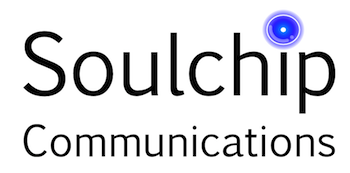I’ve been remiss in updating the site since my talk late last year, and since then the good people at UcandoIT have given me the opportunity to to some awareness training to enhance my engagement with the people the charity sends me to assist. I thought it would be useful to reflect upon the training given and also upon some lessons I’ve learned of late.
Deaf Blind Awareness training
This was back in November 2015. The training from the Deafblind charity (Sense) was very impressive, the presenter relating his professional endeavours (masters in pyschology?) and talking about my favourite sense proprioception. We were informed about the spectrum of deafness and blindness,and the issues that arise from lack of communication and the resulting access to mobility assistance. My colleagues were quite aware to a degree, having already worked with disabled people of differing kinds, and when informed about the need for a functional assessment provoking extreme interest. Also of great interest was the fact that eyesight and hearing are the last senses to form in a baby in the womb, and the first to fail as an aged adult. It also seems that the part of the brain responsible for sight can also form a ‘picture’ using touch – quite amazing.
We also learned much about physically relating to people with no or low vision, I found the hands on signing really interesting, and would really like to pursue signing in general.
Eye tracking awareness
In February of this year, UCandoIT sent me to the Royal Hospital for Neurology in Putney, south west London, to be introduced to the eye tracking hardware and software (example) used by the Compass Computer team, that provide hardware and software for people with profound problems with their mobility. Really interesting day trying out the technology, but very frustrating for me as my squint made the configuration and use very hard. In the configuration of the software/hardware, the ideal situation for the eye tracker to follow the infra-red ‘glint’ from my eyes, presented as two floating circles in black squares. The ideal would be for the circles to be in the centre of the squares, bobbing as they were being tracked, but my eyes showed up quite differently: the left flickering on and off, the right wandering to the right edge of the square… Quite amusing at the time. The tracking had to be adjusted for one eye that did a better job of looking directly at the screen. After pushing the skills of the technician assisting, I gave up after an ocular work out, and was thankful for my typing skills.
Lessons of empathy for the soulchip toolkit
Working with the people that I do is always an exercise in ‘professional empathy’, what I call a development of my personal empathy with a professional, practical approach. It means I can assist people more effectively in getting online, writing an email or just learning to type. Lately this empathy has been tested to extremes by issues with clients and people I have been attempting to assist. I have been tested by their mental health/illness, not by a physical disability.
I derive great pleasure from assisting people to manage a computer or digital device. A physical disability can be off-set with appropriate use of software, a piece of hardware and the assistance to make the choices which work in the best possible way. In the past year I have been working with stroke survivors occasionally, and this has been much more demanding for me as a trainer. Ultimately the work is just as satisfying, if not more when things work when the learner has the motivation and capacity to actually take the work given and maintain a level of success more than mistake.
As I am not a mental health professional, I’ll step carefully here – the motivation, mental capacity and also the ability to retain the information are the issues I am finding it hard to manage as a trainer and digital support agent.
If a person is having anxiety problems, I can engage being calm and gentle, coaxing the learner to perform tasks in a methodical fashion, enabling an understanding of the process. If the process is not talked through, the situation becomes fraught. Alternatively, when a person is aggressive in their attitude and demanding at the same time, with no apparent motivation to learn, then my own bias come into the fore and I may well become direct and ask for the person to desist and stop in their requests in their present state of mind. I would become engaged with their rage. I am still working out how to manage these extreme situations other than walking away.
My previous experiences with people with mental health problems generally have a support worker providing introductions and requirements. The problems then were not enough visits from the mental health nurses to give consistent support overall for the goals set. Working in one to one situations as I have been for the past 5 years has proved more challenging than I expected; is it because I have had occupational therapy pretensions ( I have been practising tai chi for 8 years) and not gained a method for mental health issues?
On reflection this could be a good focus on Activity Coordinating for elderly people.
